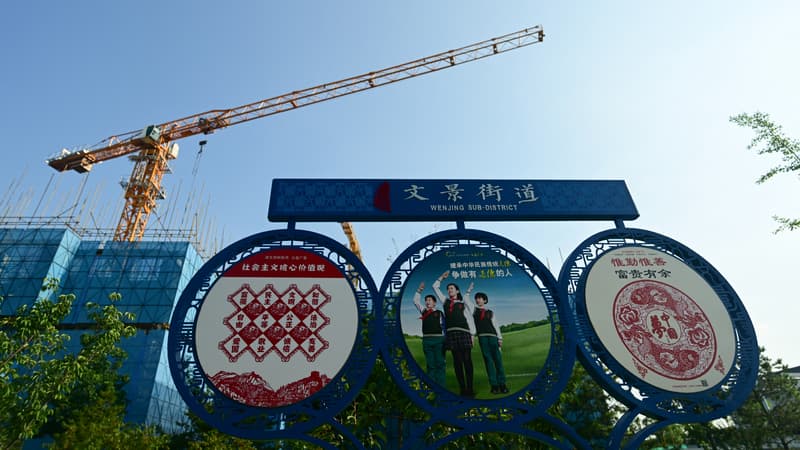Two years after Evergrande, it is the turn of the real estate developer Country Garden to face great difficulties. At the beginning of the week and faced with astronomical debt, this company was unable to pay two loan interest and is at risk of formal default in September.
A systemic risk?
A situation that remains quite similar to what Evergrande experienced before, Samy Chaar, chief economist at Lombard Odier & Cie, explains at BFM Business:
“It’s a problem of roughly the same size and it comes at a very bad time, as the other engines of the Chinese economy are slowing as well.”
But does this situation really present a systemic risk? For Samy Chaar, China will be able to intervene, even if the signals sent by the authorities are still not clear:
“China continues to be a surplus country, with reserves to prevent this situation from degenerating and dragging the country down much further, but we must have the will to act, to clean up this real estate sector, to make available fiscal resources to reduce the size of the problem: it’s not necessarily what we see, we have a feeling that (the Chinese authorities) prefer to digest this slowly rather than go into shock therapy.”
For the moment, however, this situation in the Chinese real estate sector does not seem to affect other sectors of the economy.
“We see that there is no transmission to the rest of the economy, if we look at the returns of the most fragile sectors, such as real estate, we really have an increase in these returns and therefore stress, on the other hand, in other Chinese companies, the yields have remained very low, so there is no transmission from the real estate sector to the rest of the economy”, emphasizes Samy Chaar.
Life savings of Chinese households in real estate
To fully understand the situation, the economist turns to the special status of real estate investment for Chinese households.
“To begin with, it is a problem of excess investment, there has been too much construction, too much capital has entered this sector and one of the reasons is that property is the main savings product of Chinese households: they do not necessarily have a pension. , pension funds, life insurance, this type of system that we can have in Europe and particularly in France.
“Apartments that are not necessarily financed on credit, but are financed from the life savings of Chinese households: With the excesses that have been made, Chinese households are seeing their life savings vanish and this It will have an impact on their consumption behaviour”, explains our economist.
An “extremely significant slowdown”
For Samy Chaar, China is currently experiencing a “quite significant slowdown”:
“You could almost say that this economy is in a recession. An indication that the economic situation is very painful for the authorities: they publish fewer and fewer economic indicators. So the data that the rest of the world has to judge the state of this Chinese economy is in free fall.”
Solution in this case, cross the sources and look for other data:
“You have to refer to external indicators: for example, if you want to understand Chinese trade, you can see what South Korean exports are in China, the Koreans have very good economic statistics, we see somewhere by world trade that the situation of China is very worrying. In our toolbox, we also have high-frequency private daily data to measure activity in China, and all of this agrees to say that there is real weakness that is by no means exaggerated by the consensus.”
An important point when China, for example, no longer releases data on youth employment, having suspended its release scheduled for this week, after a series of disappointing indicators in July.
Source: BFM TV


